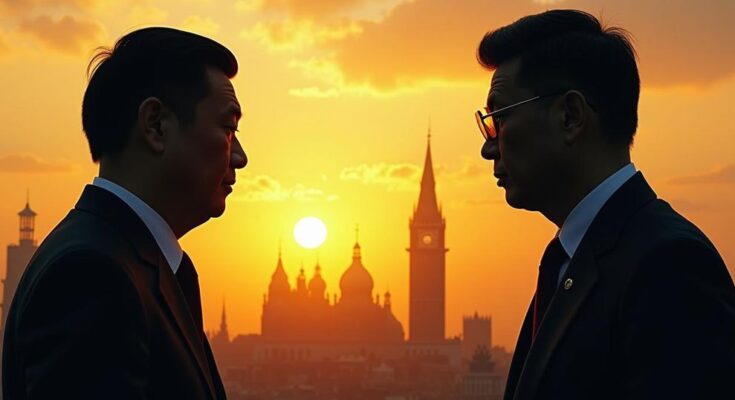China and Brazil are promoting a peace plan to resolve the Ukraine conflict, supported by a coalition of developing nations. However, Ukrainian President Zelenskyy has criticized this initiative as facilitating Russian military efforts, emphasizing the need for Russia’s withdrawal and the restoration of Ukraine’s territories. The proposal has also drawn skepticism from U.S. officials concerned about China’s role in supporting Russia.
China and Brazil are spearheading an endeavor to rally support from developing nations for a proposed peace plan aimed at resolving the conflict in Ukraine, which has met with resistance from Ukrainian President Volodymyr Zelenskyy. This initiative is centered around China’s “Six-Point Consensus” regarding Russia’s military actions in Ukraine, which has received backing from Brazil and purportedly claims support from 110 countries. However, it has been criticized for failing to address the restoration of Ukraine’s territorial integrity. In contrast, Ukraine’s peace proposal is rooted in international law, demanding the withdrawal of Russian forces and the return of all prisoners of war and civilians. On Friday, a meeting convened by Chinese Foreign Minister Wang Yi and Brazilian foreign policy adviser Celso Amorim took place, gathering representatives from 17 nations in the context of the United Nations General Assembly. Discussions during this meeting concentrated on preventing escalation, avoiding the use of weapons of mass destruction, and ensuring the protection of nuclear power plants. Wang Yi articulated a vision where “Russia and Ukraine are neighbors that cannot be moved away from each other and amity is the only realistic option,” advocating for international backing of a peace conference involving both parties. Nevertheless, President Zelenskyy vehemently criticized the peace proposal, asserting that alternative plans merely grant Russia the political leverage to sustain its military actions. U.S. Secretary of State Antony Blinken echoed skepticism regarding the initiative, expressing concerns about China’s support for Russia’s defense capabilities and highlighting that Chinese businesses are “taking actions that are actually helping Putin continue the aggression.” Despite such criticism, a group of ten countries from the Global South, including Indonesia, South Africa, and Türkiye, have endorsed a communique based on the six-point framework proposed by China and Brazil in May. Amorim indicated that this group, referred to as “friends for peace,” would persist in its discussions during gatherings in New York. Additionally, South Korea’s Foreign Minister Cho Tae-yul has accused Russia of participating in illicit arms transactions with North Korea, reinforcing statements made by the U.S., Ukraine, and independent observers. Cho also condemned Russia’s use of veto power within the UN Security Council, asserting that it obstructs necessary actions to end the ongoing conflict. In response to the China-Brazil peace plan, President Zelenskyy characterized it as destructive, insisting that genuine negotiations necessitate the withdrawal of Russian military forces from Ukraine. He firmly rejected any proposed compromises involving territorial concessions, calling upon China and Brazil to utilize their influence to halt Russian hostilities rather than to promote insufficient peace proposals. It should be noted that China has continued to maintain robust economic and political relations with Russia, offering indirect support while consciously refraining from direct military assistance. Recent accounts suggest that China is enhancing its military-technical collaboration with Russia, which highlights a growing strategic alignment in spite of Beijing’s assertions of neutrality.
The ongoing conflict between Russia and Ukraine has led to a complex geopolitical landscape, drawing the interests of various global players, including China and Brazil. These countries have proposed a peace plan intended to mediate the conflict by appealing to developing nations and promoting a diplomatic solution. However, this initiative has raised various concerns, particularly regarding its effectiveness and the omission of key elements such as the restoration of Ukraine’s territorial integrity, which is central to Ukraine’s own peace formula. The involvement of the United States and other Western nations further complicates the dynamics, as they express skepticism regarding the motivations behind the peace plan.
In conclusion, the peace initiative led by China and Brazil presents a controversial alternative to the ongoing conflict in Ukraine. It has garnered support from several nations in the Global South but faces significant opposition from Ukrainian President Volodymyr Zelenskyy, who views it as a means of enabling continued Russian aggression. The skepticism from the United States and other stakeholders highlights the challenges inherent in navigating geopolitical tensions. As discussions progress, the outcomes will likely play a crucial role in shaping future international relations and the prospects for peace in the region.
Original Source: euromaidanpress.com




